

Herbal stores are shops which sell medicinal plants and related products like spices, essential oils, flower essences, tinctures and elixirs.


Herbal stores are shops which sell medicinal plants and related products like spices, essential oils, flower essences, tinctures and elixirs.
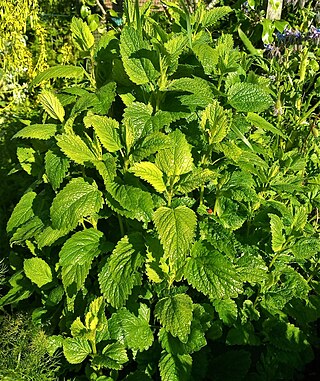
Lemon balm is a perennial herbaceous plant in the mint family and native to south-central Europe, the Mediterranean Basin, Iran, and Central Asia, but now naturalised elsewhere.
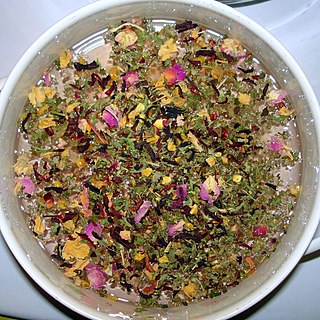
Herbal teas, also known as herbal infusions and less commonly called tisanes, are beverages made from the infusion or decoction of herbs, spices, or other plant material in hot water; they do not usually contain any true tea. Often herb tea, or the plain term tea, is used as a reference to all sorts of herbal teas. Many herbs used in teas/tisanes are also used in herbal medicine and in folk medicine. Some herbal blends contain true tea.

Chamomile or camomile is the common name for several daisy-like plants of the family Asteraceae. Two of the species, Matricaria chamomilla and Chamaemelum nobile, are commonly used to make herbal infusions for beverages. There has been limited research as to whether consuming chamomile in foods or beverages is effective in treating medical conditions.
John Boot was an English chemist and retail businessperson who was the sole founder of Boots the Chemists. Originally working in agriculture, he was forced by ill health to change careers and set up a shop to sell medicinal herbal remedies at Goose Gate, Nottingham. Although he had no formal qualification, he had learned the skills from his mother and from the Methodist book, Primitive Physic by John Wesley.

Herbal medicine is the study of pharmacognosy and the use of medicinal plants, which are a basis of traditional medicine. With worldwide research into pharmacology, some herbal medicines have been translated into modern remedies, such as the anti-malarial group of drugs called artemisinin isolated from Artemisia annua, a herb that was known in Chinese medicine to treat fever. There is limited scientific evidence for the safety and efficacy of many plants used in 21st-century herbalism, which generally does not provide standards for purity or dosage. The scope of herbal medicine sometimes include fungal and bee products, as well as minerals, shells and certain animal parts.
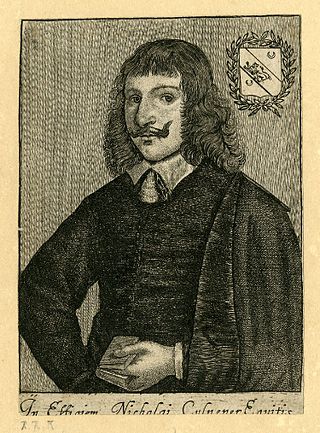
Nicholas Culpeper was an English botanist, herbalist, physician and astrologer. His book The English Physitian is a source of pharmaceutical and herbal lore of the time, and Astrological Judgement of Diseases from the Decumbiture of the Sick (1655) one of the most detailed works on medical astrology in Early Modern Europe. Culpeper catalogued hundreds of outdoor medicinal herbs. He scolded contemporaries for some of the methods they used in herbal medicine: "This not being pleasing, and less profitable to me, I consulted with my two brothers, Dr. Reason and Dr. Experience, and took a voyage to visit my mother Nature, by whose advice, together with the help of Dr. Diligence, I at last obtained my desire; and, being warned by Mr. Honesty, a stranger in our days, to publish it to the world, I have done it."
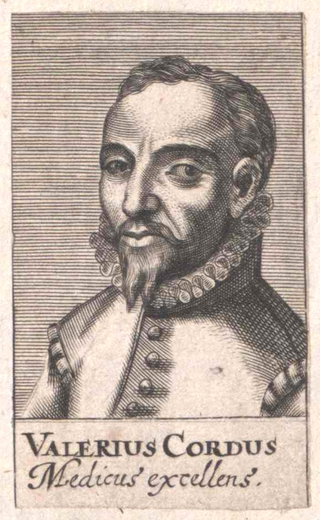
Valerius Cordus was a German physician, botanist and pharmacologist who authored the first pharmacopoeia North of the Alps and one of the most celebrated herbals in history. He is also widely credited with developing a method for synthesizing ether.

Medicinal plants, also called medicinal herbs, have been discovered and used in traditional medicine practices since prehistoric times. Plants synthesize hundreds of chemical compounds for various functions, including defense and protection against insects, fungi, diseases, and herbivorous mammals.

Apothecary is an archaic English term for a medical professional who formulates and dispenses materia medica (medicine) to physicians, surgeons and patients. The modern terms 'pharmacist' and 'chemist' have taken over this role.

Becherovka, formerly Karlsbader Becherbitter, is a herbal bitters, often drunk as a digestif. It is produced in Karlovy Vary, Czech Republic by the Jan Becher company. The brand is owned by Pernod Ricard. It is made from a secret recipe based on more than twenty types of herbs and spices.

Karol Bagh is a neighborhood in Central District of Delhi, India. It is a mixed residential and commercial neighborhood known for shopping streets, such as the Ghaffar Market and Ajmal Khan Road.

A health food store is a type of grocery store that primarily sells health foods, organic foods, local produce, and often nutritional supplements. Health food stores typically offer a wider or more specialized selection of foods than conventional grocery stores for their customers, for example people with special dietary needs, such as people who are allergic to the gluten in wheat or some other substance, and for people who observe vegetarian, vegan, raw food, organic, or other alternative diets.

Jamu is a traditional medicine from Indonesia. It is predominantly a herbal medicine made from natural materials, such as roots, bark, flowers, seeds, leaves and fruits. Materials acquired from animals, such as honey, royal jelly, milk and native chicken eggs are often used as well.

Hamdard Pakistan, is a Pakistani unani medicine company which is based in Karachi, Pakistan. It was established by Hakim Said as Hamdard Laboratories (Waqf) in 1948.
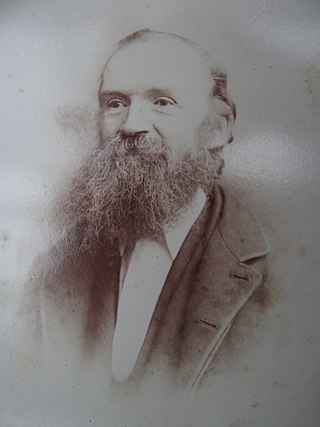
Duncan Scott Napier was a Scottish botanist, herbalist and businessman. Despite having a deprived childhood and being functionally illiterate until his early teens, he became an expert in herbal remedies and did much to establish herbalism as a recognised branch of medicine. The herbalist business that he founded stayed in his family for three generations and still exists today.

Gyeongdong Market or Kyungdong Market, located in Dongdaemun District, Seoul, is one of the largest herbal medicine and ginseng markets of South Korea. Since its establishment in 1960, the market supplies 70 percent of the nation's herbal medicine ingredients and has more than 1,000 related shops and oriental medicine clinics in the area. Gyeongdong Market also serves as a wholesale and retail markets selling agricultural products and fish in about 300,000 square meters, about five times the size of the Seoul Sangam World Cup Stadium.
Herbal smokeless tobacco is any product that imitates types of smokeless tobacco but does not contain tobacco and nicotine, or may contain nicotine without tobacco. Like herbal cigarettes and electronic cigarettes, they are often used as a tobacco cessation aid. Herbal smokeless tobacco use is an alternative to using smokeless tobacco that may help users quit.

JWH-398 is an analgesic chemical from the naphthoylindole family, which acts as a cannabinoid agonist at both the CB1 and CB2 receptors. It has mild selectivity for CB1 with a Ki of 2.3 nM and 2.8 nM at CB2. This synthetic chemical compound was identified by the EMCDDA as an ingredient in three separate "herbal incense" products purchased from online shops between February and June 2009. It was discovered by, and named after, John W. Huffman.

Herbal tea shops are stores that specialise in selling Chinese herbal tea. They are mostly found in southern Chinese cities.
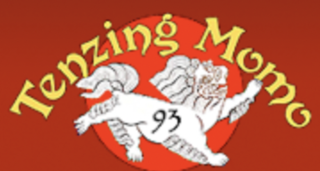
Tenzing Momo is a shop in Seattle's Pike Place Market, in the U.S. state of Washington.